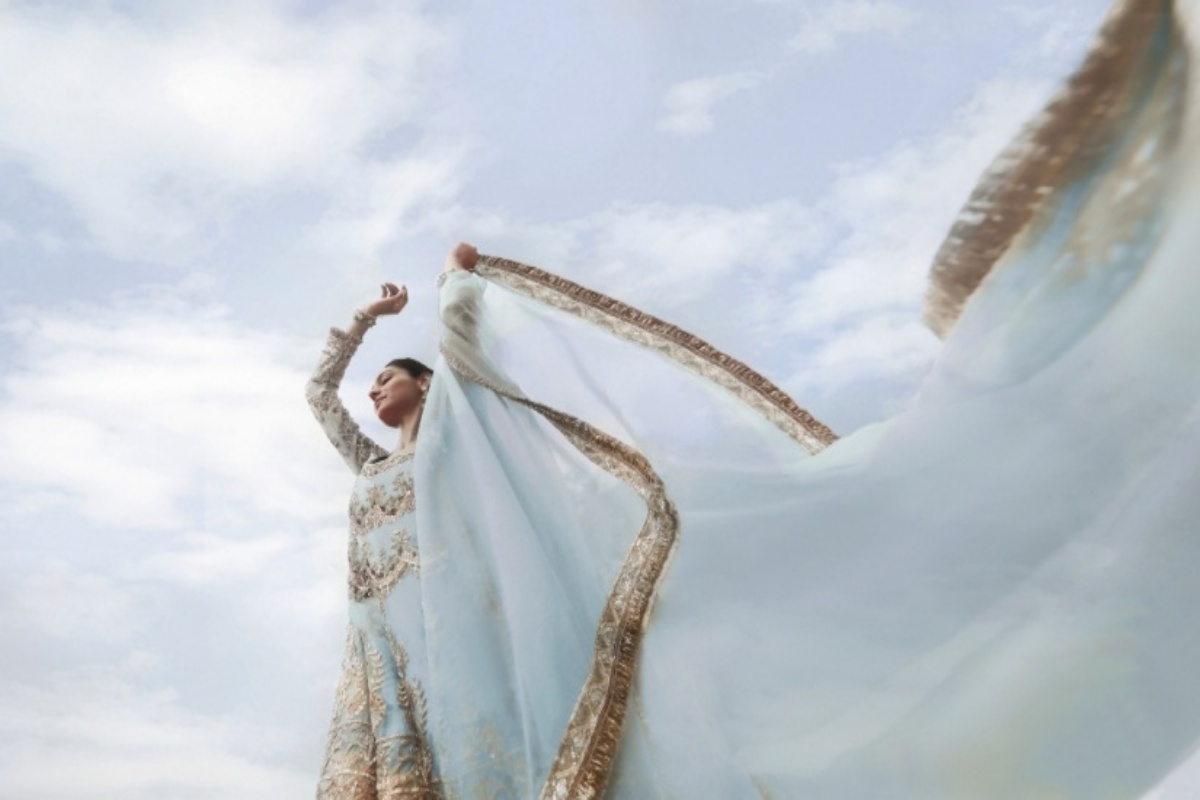India is silently behind the craftsmanship you see at many Haute Couture presentations in Paris. In Europe, couture is seen as the pinnacle of fashion, worn by a very select group of women. In India, we have an unrivalled savoir faire of handmade crafts and textiles, so it is not wonder then that international brands look to us for artisanal details.
Couture in India really has its own definition. Indian couture is about weddings and special occasion wear— watch any edition of India Couture Week and it is obvious who the designers are catering to-brides.
Advertisement
Last year it was this very same wedding driven couture that actually saved many designers. While the Big Fat Wedding had to get skinny thanks to the pandemic, weddings still happened, and brides still wanted that special dress. “Weddings have kept us in business,” says one of India’s most celebrated couturiers, Manish Malhotra. But it was a new wedding, one where the ceremony became the main occasion and not the sangeet or the reception. If you see Malhotra’s current couture collection, Nooraniyat, you will notice the intricate use of silk thread embroidery gives his designs an old-world feel, though the collection is made for a young woman.
“Before I think we were the label you came to for your sangeet or reception, now we have become the label you turn to for your ceremony,” states the designer. Indian Couture he feels will now center around craftsmanship. “The story behind your collection needs to be strong. The young fashion buyer is asking questions about how the outfit is made, the legacy of the crafts and the designs interventions. This will change how Indian designers approach couture,” he says.
Couture is gaining a new meaning, and it is no longer just for special occasions and weddings, believes the designer. Couture craft centric details will be woven into ready to wear clothes too-whether it is separates that use chikankari embroidery or handwoven white khadi shirts. Handmade details lend a special connect to clothing.
Ritu Kumar who can only be described as the Grande Dame of Indian fashion says, “Recent movements like “vocal for local” and the lack of big weddings will help re-establish the original concept of bespoke clothing and reimagine couture to diversify from bridal wear into becoming a wardrobe staple.” India has a long legacy of bespoke garments, and she adds, “We have been making and wearing hand-woven and hand-stitched garments for centuries. Our rich legacy of artisanship and craftsmanship has long lent to bespoke clothing being part of our culture.”
Kumar has noted that more and more clients are coming in with saris once worn by their mothers or grandmothers, asking for them to either be restored or for new blouses to be made for them. “The pandemic, as a whole, has rewritten the fashion rules. People who invest in any garment are more interested in buying sustainable clothes, both in terms of how they are made and how long they will last.” It is a new craftsmanship that clients want today- they have become used to wearing comfort clothing, and couture clothing that follows the “no pain no gain” theory of dressing will no longer be accepted by couture clients. “It is about dexterous embroidery and craft over trendy pieces,” says Kumar. From Ari to Zari, it is heritage artisanship that will become the focus of couture.
Of course, this second wave has meant there is a lack of confidence about when things will go back to normal, but designers believe that Indian couture is here to stay. How the collections will be presented remains a question mark in India. While Paris Couture Week will see physical shows, the second lockdown has put the India Couture Week’s plans about physical shows on hold. “We are hoping to have an edition in August or September” says Sunil Sethi, President of the Fashion Design Council of India. In March they had thought a physical couture week would be possible, but the second wave has meant ateliers have been shut and there are also safety concerns.
One of the most awaited shows of couture week is Gaurav Gupta— a designer who liked to put on an extravaganza of a show, transitioned to the digital format with a fashion film, “Name is Love”. With a strong narrative the show celebrated all Gaurav Gupta’s sculptural and architectural trademarks. “My couture collection 2021 is almost ready, and it will be very different.” Gupta admits that he is missing the charm of a physical show and says while he does not know what form his presentation will be this year, he is clear that “the show must go on”.
